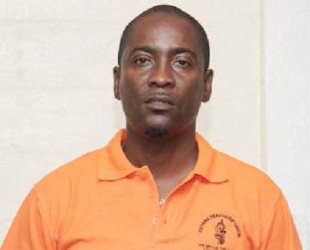The Guyana Teachers’ Union (GTU) has asked government for massive pay raises over the next five years, which union president Mark Lyte argues is needed to ensure that teachers are paid a “living wage.”
The proposed increases are so substantial that, if granted, a Trained Non-Graduate Teacher, who presently earns $84,921 per month, would see a rise in salary to $581,815 a month by 2020. Similarly, under the proposal, an untrained graduate would be earning $804,103 a month, while a trained graduate, who now earns $131,195, would be paid $898,849 a month. All of these represent a cumulative increase of 585% over the salaries presently being earned.
According to “Proposed memorandum of agreement entered into between the Ministry of Education and the GTU concerning terms and conditions of employment for teachers and teacher educators for the years 2016-2020,” which has been seen by Stabroek News, the union is asking for a 40% increase in 2016, a 45% increase in 2017, 50% in 2018, 50% in 2019 and 50% in 2020.

The union has begun negotiating a new multi-year agreement after the expiration of the 2010-2015 agreement on December 31, 2015. That agreement provided for teachers to receive a 5% across the board increase in each of the years covered under the agreement and it followed a similar agreement which provided teacher’s annual 5% increases from 2006 to 2010.
Letter writer Anthony Nedd, commenting on the proposal in Saturday’s edition of Stabroek News, called the union’s requests, which also included a range of other concessions, “preposterous.”
Nedd noted that in addition to the salary increases, the union has asked for $7,000 monthly vehicle maintenance for those who received duty-free concessions; double salary in the month of December; $25,000 annual clothing allowance; Whitley Council Leave every three years; 200 duty-free concessions for motor vehicles up to 2700 cc to be granted annually from 2016 to 2020; and the provision of a motor vehicle biennially to the GTU.
According to Nedd, the increases requested are the “epitome of unreasonableness.”
Lyte, however, disagrees.
Speaking with Stabroek News last evening, Lyte explained that the GTU is seeking to ensure that teachers are paid a living wage so that they are not forced to supplement their income to the eventual detriment of learners.
“There is no doubt that teachers are underpaid. Teachers are responsible for the creation of all other professionals so why they can’t get living wage so they don’t have to supplement by selling plantain chips or working hire car?” he asked.
Lyte added that the union is also hoping to attract more males to the profession so they hope to have the salary augmented to such a level that it becomes attractive to these individuals, whom he says are often the “main breadwinner.”
Lyte is, however, aware that the proposal may not be accepted and is ready to negotiate with the government for a sum that is both substantial and reasonable.
“Our present proposal is not unreasonable but even if we are not given the requested 40% were are hoping for something substantial. If the government can offer themselves substantial increases, why can’t they offer teachers a living wage?” he asked.
He opined that Nedd cannot be a teacher as no teacher would suggest that the work they do is not worth the proposed increases. He also took umbrage with Nedd’s representation of the requests made on behalf of union executive.
Nedd charged that the proposal is replete with self-interest.
“How the central executive of the union could even conceive of its members being released to attend to union duties one day every week and at other times as may be deemed necessary, while the President and General Secretary would be released full time and still be paid as full-time teachers, is mindboggling. To actually articulate that is perplexing,” Nedd wrote.
This comment was in reference to the union’s request that all central executive officers of the union be released every Wednesday ‒ and from time to time as the need arises ‒ to perform union duties; President and Secretary of the union to be released full-time with pay to serve the membership of the union; and an extra teacher to be assigned to each school where a central executive member is on the staff.
Lyte defended this request by saying that a one-day release, which is the present situation, is insufficient. “Wednesday is only good enough for meetings. The executive needs to be released from time to time, which will allow them to visit schools and interact with those they represent. Teachers say they are not being adequately represented and advised on issues and we would like to be able to do better for them,” he said, while adding that the extra teacher is requested so that curriculum delivery is not affected by the absence of the central executive members when they are called on to perform their union duties.
Nedd, however, asked in his letter: “Why should the government release – with pay – the executives of any union to attend to union duties? Surely the President, who has presided over a union fraught with ineptness and is seeking re-election today must have known that it is never the responsibility of the government to ensure the sustenance of a workers’ union.”




